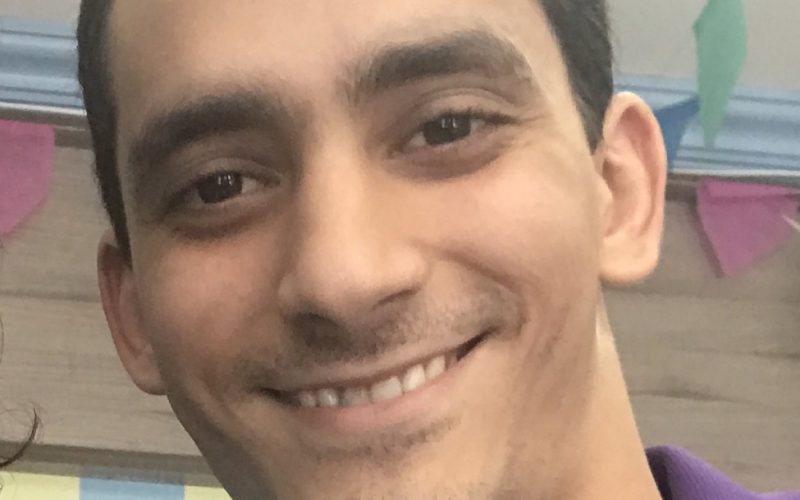After a series of unanticipated alterations to my research and travel plans in July of 2017, I checked into a hotel in Manaus, Brazil. I was exhausted and a bit overwhelmed by various travel mishaps in a very unfamiliar place. Rachad, the young man working behind the reception desk spoke kindly to me in Portuguese. His accent, however, revealed that he was not Brazilian. He was a Venezuelan refugee, I found out the next morning. After I told him about my research about the experiences of refugees in Brazil, he insisted on being interviewed.
Various illuminating and disheartening details emerged as he disclosed his story to me. There are increasingly fewer job opportunities in Venezuela, and the money that those who are employed make isn’t enough to sustain their livelihoods. According to Rachad, “The money isn’t enough even to eat, you understand. It isn’t enough at all. You [also] can’t get any products–food or medicine. You can’t stay healthy.” Due to rampant food insecurity in Venezuela, he had lost nearly 60 pounds in one year. Rachad added that political insecurity and corruption prevented people from living well. By leaving Venezuela, he sought not only a better life for him, but also for his parents and four brothers. He is saving money from his wages to be able to pay for his family to join him in Manaus. I noted that this was a lot of responsibility. Without hesitation, he replied, “Yes, it is a lot of responsibility. But it’s my family.”
Rachad’s struggles to escape the political instability, resulting violence, and lack of access to essential resources, leading him to seek refuge in other countries particularly struck me. He remarked, “I wanted to go to the United States, but since I didn’t have a visa, I gave up. I wanted to go to Colombia, but because I didn’t have a passport, I gave up. I wanted to go to Chile and Argentina, but because I didn’t have enough money, I gave up again. In Venezuela, it’s very difficult to get the necessary papers–the documentation. I took the opportunity [to seek refuge] in Brazil, [since the government requires] very little documentation [for refugees].”
Rachard turned to a variety of sources to establish his life in Brazil. He found his initial housing through contacts of a women he met days before his departure from Venezuela. After reaching out to people in the Arab community in Manaus, a suggestion from his uncle, since his family is Lebanese, he was able to find work in the hotel. Facebook also proved to be a particularly valuable resource. Rachad stated, “There are groups on Facebook that talk about life [in Brazil], about what a Venezuelan has to do after arriving to be able to work legally. So, I got the information from Facebook and from talking to people who were part of the Facebook group.” He added that he acquired his refugee status with “the support” of the Federal Police and CONARE, the National Committee for Refugees, which oversee refugee concerns in Brazil.
Many other Venezuelans in Brazil have not been so lucky. Rachad noted that many have found selling goods in the street to be their greatest employment prospect. Given that this form of work holds little financial security, it has failed to eradicate them from the near homelessness that mirrors the conditions they left in their home country. Crossing the Brazilian border, therefore, has not guaranteed consistent experiences for different groups of Venezuelan refugees.
The transition to life in Manaus has not been easy for Rachad. He struggles with the language barrier, which visibly frustrates him. He has also found it difficult to adapt to the starkly different culture. On these differences, he said, “The people here are much more open-minded about many things–socially, sexually…and here, they do a lot of drugs.” He misses Venezuelan food, which he says is “more delicious than the food in Brazil.” He is also worried about the restrictions of his refugee status. He revealed, “I am 100% legally in the country. But I have a time limit, which is a year, and I have nine, no eight months left.”
Rachad is undoubtedly determined to make a better life for him and his family. When I asked him if he brought photos or other items to remind him of home, he said, “Honestly, the desire to work, the desire to keep going, to thrive for me, for my family, is what keeps me going, the fight. I think what gives me strength is the need to keep moving forward. This is my greatest memory and what gives me strength. As for an object that I brought? No. What I brought was desire.”
Despite his determination, Rachad’s perspective on his experiences remains somewhat pessimistic. When I asked him what advice he would offer other immigrants and refugees, he said, “Don’t have very high expectations because life as an immigrant is very hard. It’s complicated. So, my advice would be that those who are going to Brazil or who are immigrating to any part of the world, know their status, and their status as an immigrant … It will take a long time to become part of the society of the other country…in my case, Brazil.”
